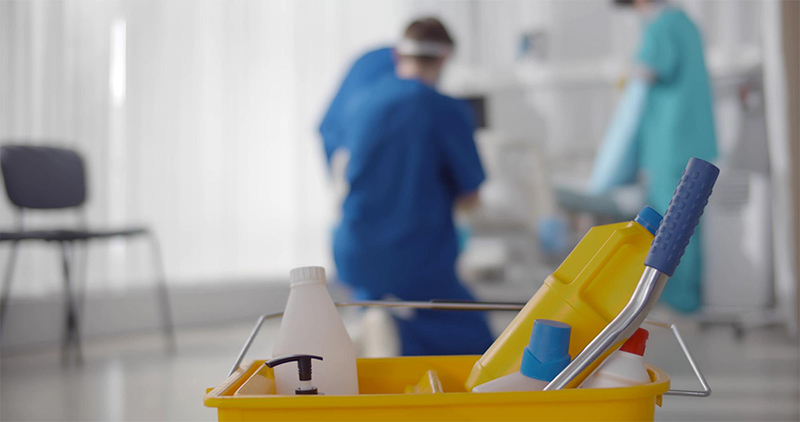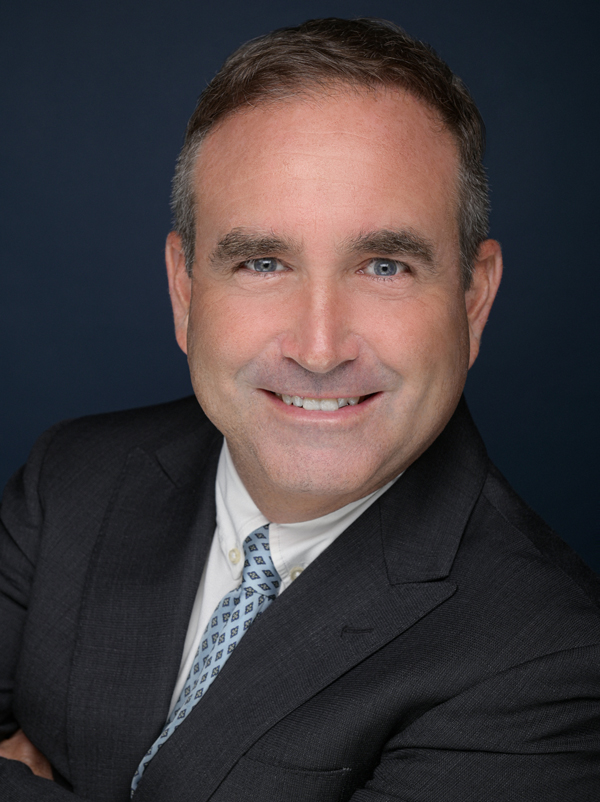Top Rated Salem Hospital Acquired Infection Attorneys in Just One Call
Salem Hospital Acquired Infection Attorney
Find out why we are one of the best Salem hospital-acquired infection attorneys
Proud Sponsors of the Oregon Ducks
& the Portland Trailblazers


Salem Hospital Acquired Infection Lawyer
Have You or a Loved One Recently Experienced a Hospital-Acquired Infection in Salem, Oregon?
Our team of experienced attorneys at Goldberg & Loren law firm specializes in handling cases just like yours. We understand the pain, suffering, and financial burden that can result from these infections, and we are here to help.
Don’t wait another day to seek justice. Contact our Salem, Oregon, hospital-acquired infection attorneys at Goldberg & Loren and take the first step towards reclaiming your life. Call now at (971) 717-2450 for a free consultation.
What Does Hospital-Acquired Infection Mean?
Hospital-acquired infections are infections that develop during a patient’s stay in a healthcare facility, such as a hospital or clinic. These can occur as a result of exposure to harmful bacteria, viruses, or other pathogens within the healthcare setting. [1]

Types of Hospital-Acquired Infections
Here are some of the most common types of HAIs:
- Catheter-associated urinary tract infections (CAUTIs): These are the most common type of HAI, accounting for about 40% of all HAIs. CAUTIs occur when bacteria enter the urinary tract through a catheter, a tube that is inserted into the bladder to drain urine.
- Central line-associated bloodstream infections (CLABSIs): These are serious infections that can occur when bacteria enter the bloodstream through a central line, a tube that is inserted into a large vein in the chest, neck, or groin. CLABSIs can lead to sepsis, a life-threatening condition that can cause organ failure.
- Surgical site infections (SSIs): These are infections that occur at the site of a surgical incision. SSIs can range from mild to life-threatening, and they can delay healing and increase the risk of other complications.
- Ventilator-associated pneumonia (VAP): This is a type of pneumonia that occurs in patients who are on ventilators, machines that help them breathe. VAP can be caused by bacteria that are inhaled into the lungs, or by bacteria that travel from other parts of the body to the lungs.
- Clostridium difficile (C. diff) infections: C. diff is a type of bacteria that can cause diarrhea and other intestinal problems. C. diff infections are often associated with the use of antibiotics, which can kill off the good bacteria in the gut that normally keep C. diff in check.
Causes of Hospital Acquired Infections
Hospital-acquired infections occur due to a variety of factors present in healthcare settings. Here are some common causes of hospital-acquired infections:
Microbiological Factors:
- Various bacteria, viruses, and fungi can be culprits, with some notorious names being MRSA, VRE, and C. diff. These often thrive in healthcare settings due to frequent antibiotic use, which selects for resistant strains.
- Individuals with weakened immune systems, chronic illnesses, recent surgeries, or invasive procedures are more vulnerable to infections.

Environmental Factors:
- Germs can persist on surfaces for extended periods, posing a risk through contact with patients, healthcare workers, or equipment.
- Improperly sterilized or reused medical devices, like catheters or ventilators, can act as a reservoir and source of infection.
- Certain viruses and bacteria can spread through the air, particularly in crowded or poorly ventilated areas.
Human Factors:
- Inadequately cleaning hands between patient interactions is a major cause of transmission.
- Breaches in protocols for sterilization, waste disposal, and patient isolation can facilitate the spread of pathogens.
- Inappropriate antibiotic use disrupts the natural gut flora, promoting colonization by C. diff and other antibiotic-resistant bacteria.
Structural Factors:
- Limited space and shared facilities increase the infection risk of close contact and cross-transmission.
- Poor airflow can trap airborne pathogens and raise the risk of respiratory infections.
- Shortage of staff, supplies, or equipment can compromise infection control measures.
Table of Contents
Legal Considerations for Hospital-Acquired Infections in Salem
Legal considerations for hospital-acquired infections can vary by jurisdiction. Some legal considerations for hospital-acquired infections in Salem, Oregon include:
Who Can Be Held Liable?
Here are some parties that could potentially be held liable for hospital-acquired infections:
- Healthcare Facility: Salem hospitals and other healthcare facilities can be held liable for infections that occur on their premises. This may include cases where the facility failed to implement proper infection control measures, maintain a clean environment, or adequately train staff.
- Health Care Providers: Individual healthcare professionals, including doctors, nurses, and other staff members, may be held liable if their actions or negligence contribute to the patient acquiring an infection.
- Hospital Employees: Administrators and executives within a healthcare facility may be held liable if they fail to implement and enforce policies that promote infection control, and standard of care, allocate resources appropriately, or adequately staff the facility.
- Pharmaceutical Companies: In cases where a hospital-acquired infection is linked to contaminated medications or medical products, the manufacturers of those products may face liability.
- Contracted Service Providers: Some healthcare facilities contract services such as cleaning, maintenance, or food services to external companies. If these contractors fail to meet established standards, they could be held liable for contributing to infection risk to patients.
- Medical Device Manufacturers: If a hospital-acquired infection is linked to a contaminated or improperly sterilized medical device, the manufacturer of that device may face liability.
- Government Health Agencies: In some cases, regulatory bodies or health departments may be involved in oversight. If it is determined that a facility did not comply with health regulations, there may be legal consequences.
- Third Parties: Visitors or other patients who introduce infections to a healthcare setting may not be held directly liable, but their actions could be considered contributory to the overall situation.

Compensatory Damages
Compensatory damages in such cases generally aim to compensate the victim for both economic and non-economic losses. Here are some potential compensatory damages that could be pursued in a hospital-acquired infection case:
- Loss of Consortium
- Loss of Enjoyment of Life
- Lost Earnings
- Medical Bills
- Mental Anguish
- Other Economic Losses
- Pain and Suffering
- Funeral Expenses
Statute of Limitations in Salem, Oregon
The Statute of Limitations for a hospital-acquired infection (HAI) lawsuit in Salem, Oregon, is two years. (ORS 12.110) This means you have two years from the date you discovered, or should have discovered, the HAI to file a hospital-acquired infection or medical malpractice lawsuit against the healthcare facility.
In some cases, the two-year limit may be extended. For example, if you were unaware of the HAI due to the hospital’s fraudulent concealment, the clock may start when you discover the medical error. If you are a minor, the Statute of Limitations may not begin until you reach adulthood.
The Importance of Working With a Hospital-Acquired Infection Attorney
Working with our experienced hospital-acquired infection attorneys can be instrumental in protecting your rights and obtaining compensation for the harm you have suffered. Here’s why:
- Legal Expertise: Our hospital-acquired infection attorneys possess specialized knowledge of medical malpractice laws, ensuring your case is navigated with precision.
- Evidence Evaluation: Our personal injury lawyers in Salem will assess medical records and evidence to determine the strength of your case and identify medical fraud or negligence.
- Navigating Complex Laws: Understanding intricate legal procedures and statutes, our attorneys can guide you through the complexities of filing a medical malpractice claim.
- Negotiation Skills: Skilled in negotiations, our attorneys can engage with insurance companies and opposing legal teams to secure fair compensation.
- Advocacy in Court: In the event of a trial, our hospital-acquired infection attorneys can advocate for your rights and present a compelling case on your behalf.

As a victim of hospital-acquired infection, you deserve maximum compensation for all the devastating consequences that come with it. Don’t hesitate to reach out to us today to fight for your rights.
Source:
[1] Hospital-acquired infection. (2023, November 26). Wikipedia. https://en.wikipedia.org/wiki/Hospital-acquired_infection

We fight hard for our clients who have acquired an infection while staying in a hospital in Salem, Oregon. Our personal injury lawyers fight for maximum compensation.
George Goldberg
Senior Partner
We Represent Medical Malpractice Victims in the Following Cities and Communities Near Salem, Oregon.
- Keizer, OR
- Hayesville, OR
- Dallas, OR
- Tigard, OR
- Woodburn, OR
- Albany, OR
- Newberg, OR
- West Linn, OR
- Canby, OR
- Wilsonville, OR
- Corvallis, OR
- Lebanon, OR
- Sherwood, OR
- Tualatin, OR
Have Questions About Your Case? Call Us Today: